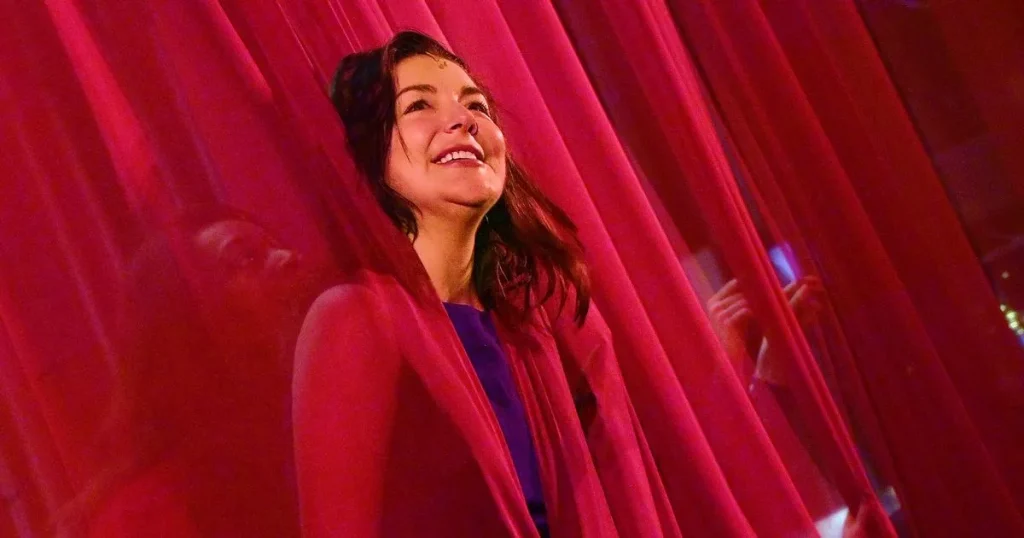Sheridan Smith’s musical Opening Night has been cancelled after a wave of criticism, despite her pleas for the audience to give it a chance. The show, directed by Ivo Van Hove, was scheduled to run until July but was cut short on May 18 due to financial challenges. The production company, Wessex Grove, expressed pride in taking the risk but acknowledged that the show did not meet expectations. Critics and audience members alike criticized the show, with many calling it “boring” and walking out during performances. Despite Sheridan’s efforts to promote the musical and share her personal struggles with stage fright, the reviews were largely negative.
Sheridan Smith starred as Myrtle Gordon, a functioning alcoholic actress, in Opening Night, which was based on a 1977 film of the same name. The show featured a talented cast including Hadley Fraser, Shira Haas, and others. Ticket holders for shows beyond May 18 were refunded, and the show was removed from the West End. Sheridan had hoped that this musical would mark a fresh start for her after a troubling 2016 breakdown. She saw it as an opportunity to take control of her past and prove that she had moved past her difficulties. Despite her personal connection to the show, Opening Night failed to resonate with audiences and critics.
The cancellation of Opening Night was a disappointing turn of events for Sheridan Smith, who had been open about her fears and hopes for the production. The show faced harsh criticism from both reviewers and attendees, with many pointing out its flaws and lack of appeal. Despite the challenges, the cast delivered strong performances throughout the production’s run. Sheridan’s willingness to share her struggles with stage fright and her personal connection to the musical added depth to her portrayal of Myrtle Gordon. The show’s early closure was a setback for everyone involved, but it also highlighted the unpredictable nature of the theatre industry.
Sheridan Smith’s experience with Opening Night serves as a reminder of the risks and challenges of performing in the entertainment industry. Despite her efforts to promote the musical and encourage audience members to attend, the show failed to meet expectations and faced harsh criticism. While Sheridan’s personal connection to the material added depth to her performance, it wasn’t enough to overcome the production’s flaws. The early closure of the show was a disappointment for all involved, but it also reflects the unpredictable nature of theatre and the need for constant adaptation and growth.
The cancellation of Opening Night also sheds light on the importance of honest and constructive feedback in the creative process. Even though the show received negative reviews, it’s essential for artists and performers to learn from criticism and use it to improve their work. Sheridan Smith’s vulnerability in sharing her struggles with stage fright and her dedication to the production are commendable, even though the show did not resonate with audiences. This experience will undoubtedly shape Sheridan’s future projects and strengthen her resilience in the face of challenges in the entertainment industry.
In conclusion, Sheridan Smith’s musical Opening Night faced criticism that led to its early closure, despite her efforts to promote the show and connect with the audience. The cancellation highlighted the financial challenges and risks inherent in the theatre industry. Sheridan’s personal connection to the material and her willingness to share her struggles with stage fright added depth to her performance but couldn’t salvage the production. This experience will undoubtedly shape Sheridan’s future projects and contribute to her growth as a performer. The lessons learned from Opening Night will serve as valuable insights for both Sheridan Smith and the production team as they navigate the unpredictable world of theatre.


